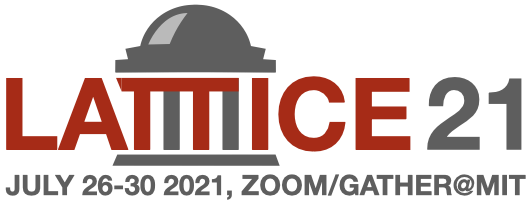Speaker
Description
In this work, we obtained the finite temperature Bottomonium interaction potential from the first principle lattice-NRQCD calculation of Bottomonium mass and width [Phys.Lett.B 800, 135119 (2020)]. We find that the HTL complex potential is disfavored by the lattice result, which motives us to employ a model-independent parameterization --- the Deep Neural Network (DNN) --- to represent the Bottomonium potential, extract the potential allowed by the lattice data.
The DNN is a widely used deep-learning method and can be treated as a model-independent parameterization to approximate arbitrary functional relations. In this work, we employ the DNN to represent the temperature-dependent Bottomonium potential and extract both the real and imaginary parts, $V_R(T,r)$ and $V_I(T,r)$. We find that while $V_I(T,r)$ increase with both temperature and distance, the extracted value is significantly greater than the HTL prediction. Also, while the color-screening effect is observed in $V_R(T,r)$, the temperature dependence is qualitatively weaker than other model calculations. Combined with the lattice result, our study suggests a new picture of Bottomonium dissociation. High excitation of bound states, such as 2P and 3S states, are allowed to exist at a temperature as high as $\sim0.33~$GeV. Their suppression in the Quark-Gluon Plasma is caused by the temperature-dependent decay width. The latter can be as high as $\sim 0.6$~GeV, which corresponds to the lifetime $\sim0.3$~fm. Such a new dissociation picture can be tested in precise comparison with Bottomonium observables in heavy-ion collisions.




